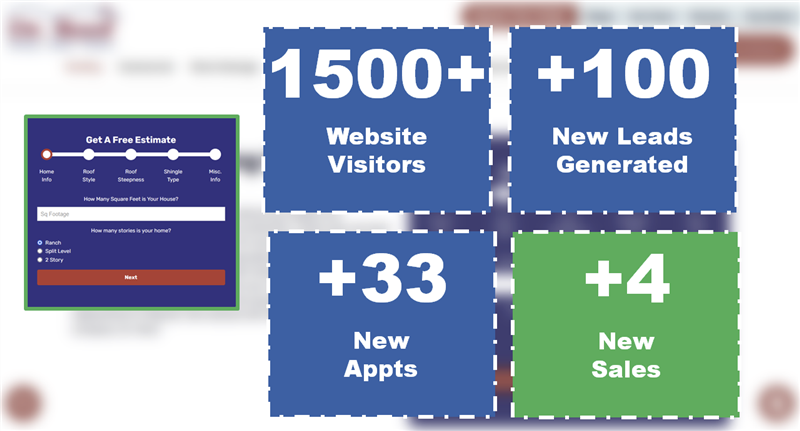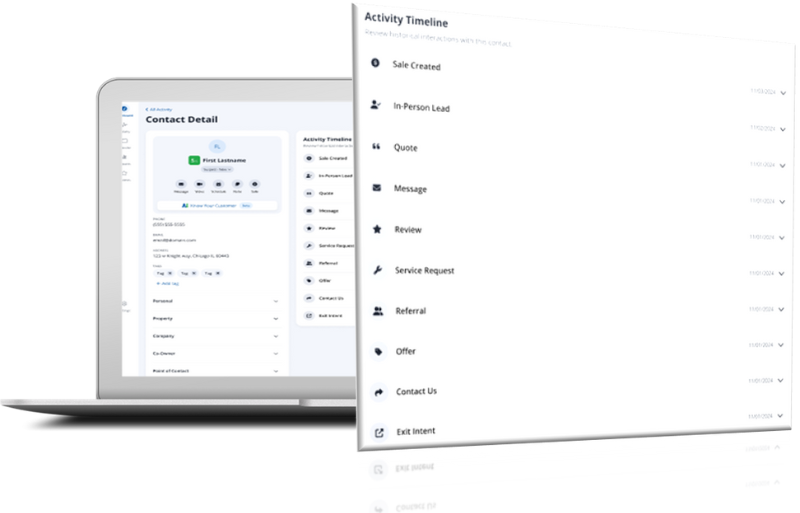Should Your Home Service Company Hire Recruiting Help?

Here’s a nightmare situation we know many home service companies have faced: you’ve spent thousands of dollars on acquiring new business. Your marketing efforts are pulling in leads, and you have the systems in place to keep projects organized. But there’s one major thing missing—the talent to fulfill the workload.
You know that hiring inexperienced project managers or unlicensed contractors isn’t an option. But you’re also in desperate need of new team members.
When this happens, you have three primary options available to you:
- Work with a staffing firm
- Hire an in-house recruiter
- Assign different recruiting tasks to your existing team
Let’s examine the pros and cons of each of these options to figure out what will work best for your home service company!
Download our Home Service Job Description Guide and Template to jump right into recruiting!
1. Work with a Staffing Firm
There are two major factors you have to think about when hiring a staffing firm. The first is cost and the second is ability to understand the scope of your hiring needs.
Many home service companies find that using a staffing firm is out of the question simply because of the cost. If your business is hiring for a permanent position, recruiting firms often take between 20 and 30 percent of a worker’s first-year salary as payment. Especially if you’re hiring for multiple positions, this payment scheme can add up.
The other thing to consider is a staffing firm’s ability to understand your company’s hiring needs. The home service industry comes with a unique set of recruiting challenges because there’s a great demand for specific skillsets but very little supply. Staffing firms, particularly corporate recruiting firms, may have a difficult time understanding how to navigate these specific home service company needs.
All of this being said, staffing firms have been refining their recruiting tactics for years, so they understand what it takes to find a candidate. They also have software tailored to recruiting, making it easier for them to find and keep track of candidates.
Hiring temporary employees is also easier with a staffing firm. They can take on the HR logistics of hiring temporary employees, allowing you to free up some time with paperwork and quickly fill in gaps in your team.
Pro and Con Summary
Pros: refined recruiting tactics and toolsets, can find candidates for temporary or long-term needs
Cons: expensive, might not understand industry needs
2. Hire an In-House Recruiter
While hiring an in-house recruiter still isn’t a cheap option, it has several benefits that might make it worthwhile. If you hire an in-house recruiter, the primary benefit is their understanding of your company. While a staffing agency might not understand your industry, in-house recruiters witness your company and its challenges every day. This closer connection can often be seen in the candidates they deliver.
When deciding whether or not to hire an in-house recruiter, the decision should ultimately come down to assessing your current recruiting costs versus the cost of hiring someone in-house. For example, according to Glassdoor, the average salary of an in-house recruiter for a company with 51-200 employees is $45,867 (source). If you add that to the cost of benefits and map it against the annual cost of your current solutions and their ROI, you can determine whether it might be worth it for your company to make the investment.
Pro and Con Summary
Pros: understands company needs, quicker turnaround
Cons: possible internal politics
3. Assign Different Recruiting Tasks to Your Existing Team
If you’re reading this article, it’s likely that this is what you’re doing right now—a kind of mish-mosh approach to recruiting, with management often devoting a large portion of time to talent search and interviewing. While this option may be cheaper in terms of labor resources, it might actually be costing you in terms of attention diverted away from primary roles and goals.
When staff members in other roles focus on recruiting efforts, you’ll also find a lack of quality in applicants. Recruiters understand how to market to the right candidates, whereas other staff members don’t have the resources or know-how to find the right people for the job. This means you’ll ultimately spend ineffective dollars on recruiting efforts and get sub-par results.
In the long-run, this is not a sustainable solution, and if your company is going to substantially grow, you’ll likely need to devote more resources to your recruiting efforts. One way to do this is through getting your own recruiting software! You want one that ties in schema on your job postings so that Google can organically find and show your postings within their job search engine. Also look for software that collects all candidate info in one place.
Spectrum’s recruiting software can help you do both of these things! Request a demo to learn more.
Pro and Con Summary
Pros: cheaper, total control of candidate selection
Cons: focus taken away from operational goals, low quality candidates
Recruiting Is Marketing—Start Thinking of It That Way
No matter which option you go with, your company needs to understand one fundamental thing: recruiting is, at its core, marketing. This means you need to have a targeted strategy for making your company desirable to potential employees. And this often starts with your job descriptions! Download our Home Service Job Description Guide and Template to take the first step in marketing to employees.










